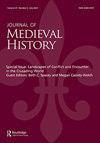Poor commons and kings’ propines: food and status in later medieval Aberdeen
IF 0.3
2区 历史学
0 MEDIEVAL & RENAISSANCE STUDIES
引用次数: 0
Abstract
ABSTRACT Assuring the supply of food and drink in the medieval Scottish town, and safeguarding the town’s reputation in relation to this, were at the heart of the burgh government’s duties. Some foods were specially associated with the poor; conversely, provision and consumption of high-status comestibles was at the core of guild ceremonial, civic pageantry and celebration, and hospitality offered to important visitors. There was a recognised ranking of crafts engaged in food and drink production, and those who failed to meet expectations were threatened with loss of equipment or status – although burgh officers risked their own reputation when they failed to carry out the prescribed penalties. Employers were expected to give meals to their servants and townspeople had a mutual responsibility to provide sustenance for those engaged in public service. Status and reputation, individual and collective, and social relationships, depended on the successful provision of food and drink.贫穷的平民和国王的贵族:中世纪后期阿伯丁的食物和地位
本文章由计算机程序翻译,如有差异,请以英文原文为准。
求助全文
约1分钟内获得全文
求助全文
来源期刊

JOURNAL OF MEDIEVAL HISTORY
MEDIEVAL & RENAISSANCE STUDIES-
CiteScore
0.60
自引率
0.00%
发文量
29
期刊介绍:
The Journal of Medieval History aims at meeting the need for a major international publication devoted to all aspects of the history of Europe in the Middle Ages. Each issue comprises around four or five articles on European history, including Britain and Ireland, between the fall of Rome and the Renaissance. The Journal also includes review articles, historiographical essays and state of research studies.
 求助内容:
求助内容: 应助结果提醒方式:
应助结果提醒方式:


